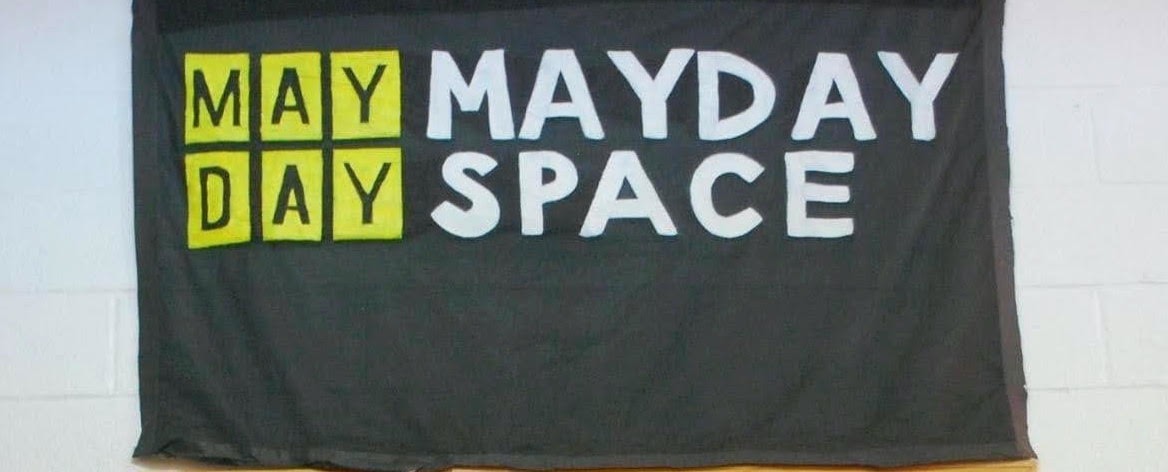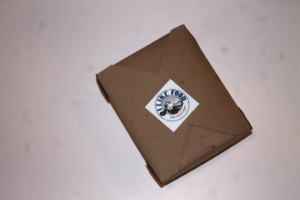
Sandy Nurse
As a community organizer, I know from experience that in order to create an initiative that has staying power, you need to first build community support. Whether you’re working to open a community garden, start a tenant association, or fight for resources for our schools, doing it alone can create more upfront work, and result in less participation.
It’s all about the collective power of the group. I have seen, and fully believe, that building consensus among as many stakeholders as possible is fundamental not only for the success of any meaningful change, but also to staying accountable to our communities as leaders.
I saw this playout firsthand when I worked with a group of organizers to start Mayday Space — a hub for grassroots organizing, movements, and community groups — in Bushwick in 2014. We didn’t want to just build a space based on what we assumed the community wanted and needed. Instead, we surveyed the broader community, explicitly asking them what they wanted out of a home for movements. We learned the top community concerns were access to health programming, space for youth events, a place to organize against displacement, and classrooms to do political education. Armed with community knowledge, we recruited experts in wellness to do yoga, and we held classes in Spanish, and cooking classes; we supported youth groups and helped them host open mics, and we offered space for an incubating tenant association. We became a regular spot for movement groups to run workshops.

That collaborative process paid off: Mayday is still being used today for the exact purposes the community members told us would benefit them.
It was along those lines that we started BK ROT, a youth green jobs program that employs young people of color to collect commercial and residential organic waste for composting. We talked to as many people from our neighborhoods as we could. We petitioned businesses and residents, got a letter of support from our local Community Board, and talked to the teachers at the schools we wanted to recruit youth employees from, Bushwick Campus and Bushwick Leader.
Just like Mayday, BK ROT is still serving its original purpose.
In both of these projects, in order to create a lasting institution that can positively impact hundreds of people every year, we needed broad support. To get that support, we provided plenty of opportunities for the community and groups to have direct input on what we were doing and planning.

Now as a candidate for city council, I am bringing that mindset to building policy. I am determined to model co-governance: a process where movements and community members aren’t only asked for their input, but are at the decision-making table, side by side, with decision-makers shaping legislation and policy. It’s a process where power and accountability flow from the bottom-up, not from the top-down. As Representative Ayanna Pressley said “those closest to the pain should be closest to the power.”
Acknowledging the ongoing struggle
The first step was recognizing the tremendous work of social, economic, and racial justice movements that occurred long before I was even born. So many community groups, led by working class, immigrant, and Black, Indigenous, and People of Color, have already invested time and resources into viable policy solutions that can address our current problems, from the crisis in health care to workers’ rights to climate change. The solutions to these issues exist and have been developed by the expertise of people living with the terrible consequences of our current system.
From VOCAL-NY’s policy demands on mental health, housing, and drug use, to Make the Road’s demand that our immigrant neighbors have municipal voting rights, our campaign is centered those existing policy solutions in our platform.
Putting Boots on the Ground to Survey Our Community
We took those demands from movements for justice and asked whether the larger community agreed with them. Our goal was to create as much consensus within the community about our platform as possible.
For the first several months of our campaign, we canvassed residents of the 37th on what we saw as some of the top issues facing our neighborhoods. We talked about public safety in Cypress Hills, climate change, affordability, and education in Bushwick, and we listened to residents of East New York develop innovative strategies to fight the housing crisis. We made our campaign accessible to everyone by prioritizing language accessibility and having events at different times to accommodate work schedules.
Through all of this, we empowered people from the community to lead our campaign through creating a collaborative culture, inviting direct input, and seeking consensus as much as possible.
Forums
We also teamed up with member-led organizations to host policy sessions and meet and greets to build a platform based on the ideas of the collective, not just the campaign.
We talked about climate justice with TREEage, and housing justice with CUFFH Action. Our campaign knows that participatory policy making is not about reinventing the wheel: it’s about working with the community to identify the solutions that exist, and then turning our campaign into a vehicle for fighting for those policies.
Pulling it all together as a living Policy Action Plan
This policy platform is the result of these efforts, and reflects our vision for a better community, and a better City. It is, as all policy platforms should be, a living document; one that is and will continue to be informed by movements as we collectively struggle for a better world.
Our campaign is firmly rooted in a model of co-governance, and if elected, we intend to bring that same belief in community driven solutions and approaches to the City Council.
We’re at a critical moment in New York City history — and what comes next should not be dictated by leaders in glass towers but by the New Yorkers most impacted by its outcomes.
Sandy Nurse is a candidate in the Democratic Party primary for city council’s 37th District, which represents parts of Bushwick, Cypress Hills, East New York, Ocean Hill and Brownsville. Bushwick Daily is committed to publishing a diversity of local voices. Do you have something you’d like to say? Email [email protected]


